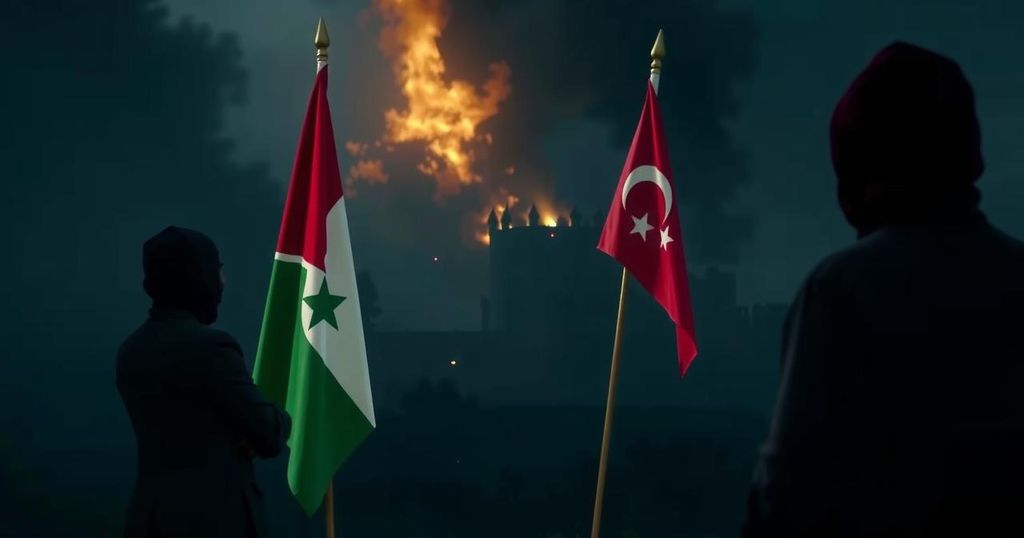UN Tensions Mount as Russia Vetoes Ceasefire Resolution for Sudan

Russia vetoed a UN Security Council resolution, proposed by the UK and Sierra Leone, aimed at establishing a ceasefire in Sudan amid its ongoing civil war. British officials condemned the veto, calling it a disgrace, while Russia defended its position, citing respect for Sudanese sovereignty. The conflict has created an immense humanitarian crisis, displacing millions and resulting in numerous casualties, underscoring the urgent need for a sustainable resolution.
A heated debate unfolded at the United Nations Security Council as Russia exercised its veto against a proposed UK-backed resolution advocating for a ceasefire in Sudan, which has been devastated by a protracted civil war lasting 19 months. The resolution, co-sponsored by Sierra Leone and the UK, aimed to halt hostilities between the Sudanese army and the paramilitary Rapid Support Forces (RSF), which have been embroiled in a violent struggle for power since April 2022. With over 11 million displaced and tens of thousands killed, the situation has been described as the world’s worst humanitarian crisis. Countries like the UK and the US condemned the Russian veto, asserting that it obstructs progress towards peace and exacerbates human suffering. The UN Security Council’s discussion revealed deep divisions regarding the ongoing conflict in Sudan. British Foreign Secretary David Lammy labeled the veto a “disgrace,” lamenting the humanitarian consequences that continue to unfold amid the unyielding violence. U.S. Ambassador Linda Thomas-Greenfield echoed these sentiments, accusing Russia of hindering efforts to resolve the crisis while pursuing its own political ambitions. In contrast, Russia’s representative, Dmitry Polyanskiy, defended the veto by asserting the necessity to respect Sudanese sovereignty and denouncing the UK resolution as an illegitimate interference in Sudanese affairs. Sudan’s UN ambassador emphasized that certain crucial proposals were omitted from the draft resolution, asserting the need for a clause condemning foreign support for the RSF and a classification of the RSF as a terrorist organization due to severe violations of human rights during the conflict. Despite unanimous support from the other 14 Council members, Russia’s veto prevented any formal action, leaving the conflict unresolved and humanitarian conditions deteriorating further for millions affected.
The civil war in Sudan, which erupted in April 2022, has plunged the nation into chaos, with fierce fighting between the Sudanese Army and the RSF leading to untold suffering. The war has resulted in significant loss of life, widespread displacement, and a dire humanitarian situation, exacerbated by interrupted access to food, healthcare, and aid. International responses have been varied, with calls for a ceasefire and humanitarian assistance being met with political complexities surrounding sovereignty and intervention. The UN Security Council’s divided stance reflects broader geopolitical interests intertwined with Sudan’s intricate socio-political landscape, illustrating the challenges of achieving international consensus in the face of such crises.
The refusal of Russia to support the UK-backed ceasefire resolution highlights the ongoing geopolitical tensions influencing humanitarian responses in conflict zones. As Sudan grapples with an unrelenting civil war and deepening humanitarian crisis, the international community faces significant obstacles in effectuating meaningful intervention. Meanwhile, the soaring casualty rates and escalating suffering demand urgent attention that current political dynamics appear to thwart, leaving millions of Sudanese at risk as calls for action intensify with each passing day.
Original Source: www.bbc.co.uk








